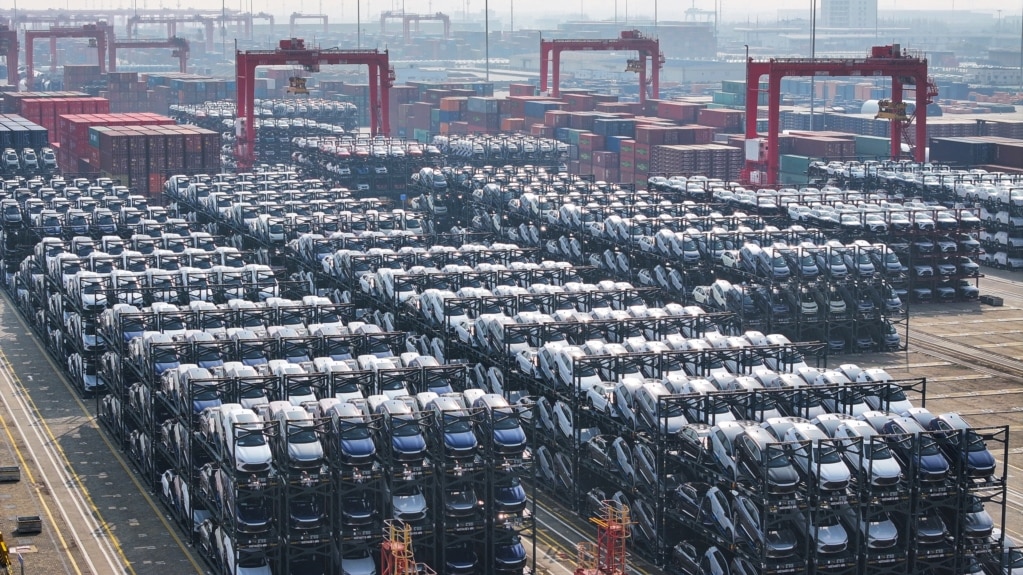President Joe Biden’s administration says it will investigate Chinese-made “smart cars” as possible security risks.
The administration says the cars can gather important information about Americans driving them. The investigation could lead to new regulations. The new rules might prevent China from using the latest technology in cars. Officials say they are concerned that features like driver assistance technology could be used to collect information on Americans.
The administration is not proposing to ban imports of Chinese smart cars. But Biden said he is taking steps to protect Americans’ data.
“China’s policies could flood our market with its vehicles, posing risks to our national security,” Biden said in a statement Thursday.
The proposed investigation is the latest action by the Biden administration related to what officials consider the growing threat from China. For example, Biden signed an executive order late last month. It requires the Department of Justice to create new rules to protect “government-related” data about individuals.
Biden and other officials also noted that China has put in place some restrictions on American cars and other foreign vehicles.
Commerce Secretary Gina Raimondo said connected cars “are like smartphones on wheels” and are a serious national security risk.
“These vehicles are connected to the internet. They collect huge amounts of sensitive data on the drivers,” she told reporters recently.
Data collection is not the only concern, she and other officials said. Connected vehicles could also be remotely used or controlled.
Raimondo said, “It’s scary to contemplate the cyber risks (and) espionage risks that these” have.
A spokesperson for China's Foreign Ministry said that Biden's actions "are discriminatory practices clearly targeted at certain countries.”
The United States imports few Chinese cars partly because the U.S. places high taxes on vehicles imported from China. But officials are concerned that taxes are not enough. Some Chinese companies avoid U.S. taxes by setting up factories in countries such as Mexico.
The Commerce Department will seek information from the auto industry and the public about the risks and possible steps to reduce them, the administration said. Officials will then develop possible regulations to govern the use of technology in vehicles from China and other "countries of concern,'' including Russia and Iran.
“We’re doing it now, before Chinese manufactured vehicles become widespread in the United States and potentially threaten our privacy and our national security,'' Raimondo said.
Electric vehicles and other cars increasingly use computer technologies to operate navigational tools and to provide driver-assistance features. Computers also are used to reduce operating costs and carbon emissions, the administration said. The cars connect to personal devices, other cars, U.S. infrastructure and their manufacturer. The Biden administration said that creates national security risks.
The administration of former President Donald Trump put in place high import taxes on many Chinese products. Biden continued those policies. They have effectively prevented Chinese automakers from entering the U.S. market. But U.S. officials and industry leaders worry that Chinese companies might choose to accept the additional costs as China increases its export push. Chinese car makers also aim to build more vehicles overseas. For example, electric vehicle company BYD announced plans last year for its first European factory in Hungary.
The Alliance for Automotive Innovation represents major carmakers and technology manufacturers around the world. It said it supports Biden's goal to protect public safety but also warned of interfering with low-risk exchanges such as “safety technologies essential to vehicles on the road today.”
The European Union is also concerned about rising imports from China. The EU opened a trade investigation last year into Chinese government support for its electric vehicle industry. The investigation is ongoing.
I’m Dan Novak.

